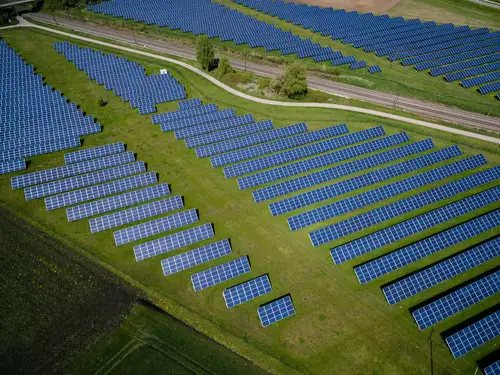Germany and France have called on the EU to make massive investments to support domestic industry so the EU will not fall behind American companies, which are benefiting from the copious government subsidies in the US Inflation Reduction Act (IRA). The EU deems the act discriminatory against non-American companies
German Chancellor Olaf Scholz and French President Emmanuel Macron held a meeting in Paris on Sunday to discuss a response to the controversial American law.
Passed by Congress in August, the Inflation Reduction Act was a $430 billion package designed to combat climate change, increase social spending, reduce inflation, and lower energy prices. One of its main features are generous tax breaks available to companies which invest in clean energy, as well as sizable subsidies for domestic renewable energy projects, electric batteries for EVs, as well as electric vehicle manufacturers.
The EU has complained that the package is protectionist and its measures discriminate against European companies trying to make headway into the American market in those sectors. The EU argues the law is not in compliance with international rules of fair trade and it will unfairly encourage companies in Europe to shift their investments to the US, removing them from Europe.
At a joint news conference with Macron at the Élysée Palace, German Chancellor Olaf Scholz said, “The first thing is to make sure we as the European Union are not treated worse than immediate neighbors such as Canada and Mexico, for example – that cannot be accepted.” French President Macron added that in response to the American legislation, which he had called, “super aggressive,” the EU has “a real convergence on the responses we’re bringing.”
Next month, EU leaders will hold a meeting to discus their options in response to the law. One option being discussed is filing a complaint with the World Trade Organization (WTO). Another is a support plan which would offer more lucrative terms for member states investing in their nation’s companies. There is also talk of the EU directly allocating its own funds to struggling companies, according to a Bloomberg report Monday.
A new bond program has also been proposed which would balance out financial inequities between EU member states, and give poorer nations additional resources to invest in green technologies.
However some EU states, such as Denmark, Finland, Ireland, the Netherlands, Poland, and Sweden, have noted that retaliatory subsidies launched by the EU could set off a subsidy-race, which would fragment the markets. That could split the global economy up, create imbalances in supply, and drive prices even higher, just as the current fight against inflation is risking a global recession.

